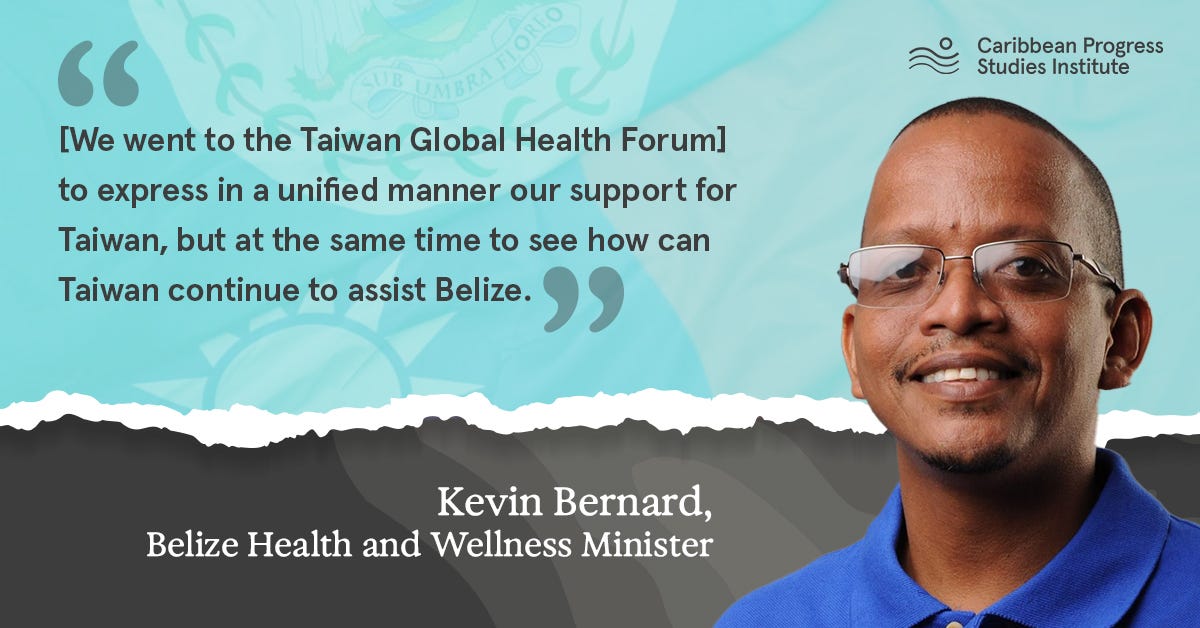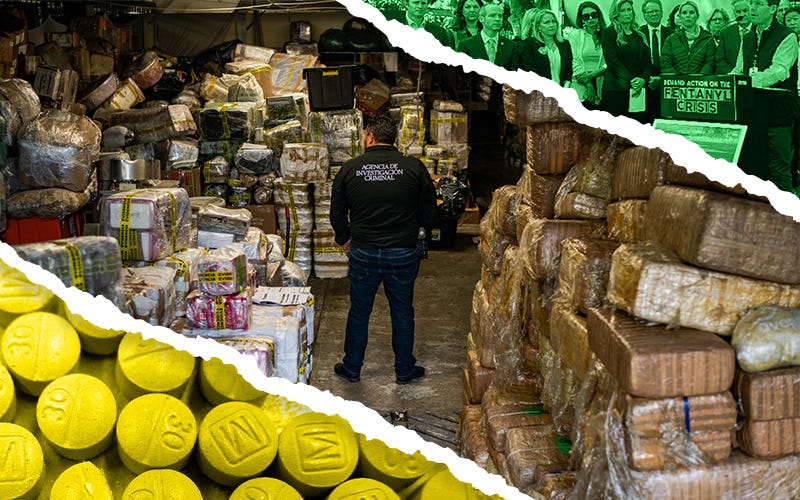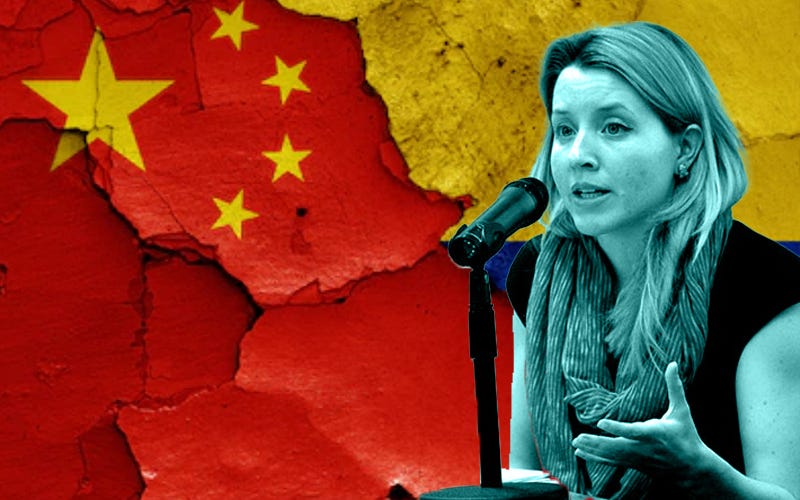Chaufa - Expressing Support
Mexico's and Peru's presidents meet Xi, Chile seeks cooperation with Sinovac, El Salvador opens its Chinese-built library, Dominica's new sister city
Hi! Welcome to Chaufa, a China-Western Hemisphere Newsletter by CPSI.
Today’s Edition covers November 13 to November 19.
This Week’s Top 5 Stories:
Presidents and Prime Ministers from across the region met with President Xi at APEC in San Francisco, including Mexican President Lopez Obrador, U.S. President Biden, and Peruvian President Boluarte. Canadian PM Trudeau briefly talked to Xi on the sidelines, where he expressed hope that the two sides could soon resolve their tensions.
In his meeting with AMLO, Xi also called for further cooperation in finance, electric vehicles, and other emerging industries. (Xinhua)
Chile’s economic and science ministries met with Sinovac representatives and agreed to form a working group on establishing a vaccine research and development center in the South American country.
The news was likely prompted by Sinovac’s recent announcement that it would invest $100 million in a new vaccine plant in Colombia instead of Chile.
The Chinese-donated El Salvador National Library finally opened this week, with President Bukele inaugurating the $54 million building.
The new library, as well as a new national stadium, had been originally proposed in 2019 when San Salvador cut relations with Taipei.
Dominica’s capital city Roseau, signed a sister city MOU with the central Zhejiang city of Yiwu. The MOU also covers economic, trade, education, culture, tourism, and sports cooperation.
This appears to be Dominica’s first sister city agreement with China, as Roseau’s only previous sister city seems to have been Waltham Forest in England.
Belize’s housing ministry received a $1.4 million grant from the Taiwanese government to finance the construction of 50 new homes, while Taiwan similarly disbursed $8 million for 1,000 new homes for Paraguayan indigenous peoples.
My Take
APEC beyond economic cooperation
Aside from discussing trade and investment, Mexico’s president joined the United States in tackling one of the most pressing issues in the Asia-Western Hemisphere relationship: fentanyl supply chains. Following their APEC bilateral meetings, both Biden and AMLO reached agreements with Xi to reduce the flow of fentanyl precursors.
Given that governments on both sides of the Pacific are not fans of illegal drugs, stemming the flow of fentanyl and fentanyl precursors may seem to be, to use a favorite PRC term, a “win-win.” However, it has only been in the last few months that Mexico and China started working together to tackle the issue when they held their first Working Group on Precursor Chemicals with China’s Vice Minister for Public Security.
Prior to this fall, the issue was often a sticking point for deepening Mexico-China ties. For example, in April the drug trafficking issue caused a minor rift in the Beijing-Mexico City relationship when China denied that it was the origin of fentanyl precursors and AMLO responded “If [the precursors] are not produced in China, where is it produced?”
Fentanyl is a pressing issue not just because of its humanitarian and social ramifications. Without a doubt, the drug has had horrible social ramifications, killing more than 70,000 Americans in 2021 (about twice as many that died in car accidents). Fentanyl overdoses are also beginning to kill an increasing number of Mexicans.
But the fentanyl supply chain is also starting to become a sticky political issue between the Western Hemisphere and China. Beijing made its unnecessarily defensive comments in April in response to AMLO honing in on the issue due to pressure from the U.S. Republican party. With an increasing number of Americans dying from fentanyl every year, Republicans have latched onto the China-Mexico-United States supply chain to further their broader antagonistic foreign policy against the two countries.
This episode is also a reminder that what happens between Biden and Xi echoes beyond the corridors of the White House and Zhongnanhai. As Colombian President Petro explained to CGTN and Peru’s trade minister stated to SCMP, getting the relationship right between the leaders of the world’s largest nations cools down the global economic and political environment in ways that benefit the region.
The Roundup
Politics and Society
Javier Milei, who had once referred to the PRC as “murderous”, was elected president, possibly heralding a more contentious relationship between Argentina and China. Just before he was elected, Fermín Koopquoted Margaret Myers in Dialogo Chino that “victory for Milei would undoubtedly lead to a rethinking of relations with China, and possibly even a review of existing projects.”
Uruguayan President Lacalle Pou just landed in China for an economically focused trip that will feature a meeting with Xi, where Lacalle Pou hopes to restart trade agreement negotiations, as well as meet with the Chinese Council for the Promotion of International Trade and hold an investment seminar.
Outgoing Ecuadorian President Lasso granted China’s ambassador the National Order of Honorato Vasquez for strengthening relations in “political, economic, commercial, and cultural fields”, five days after bestowing a similar award on the U.S. ambassador.
The PRC and the Honduran National Telecommunications Commission signed an agreement on distributing Chinese films in the country.
Investment, finance, and infrastructure
China Railway signed an agreement with the Brazilian state of Goias to expand infrastructure cooperation and pursue new mining investments.
A controversial mining project in Panama by Canadian firm First Quantum, whose largest shareholder is China's Jiangxi Copper, that had prompted nationwide protests looks likely to have its contract revoked by a local court.
The governor of Buenos Aires province announced a new $1.25 billion Chinese investment in a local urea production plant and an NPK fertilizer plant in the days leading up to Argentina’s presidential run-off election.
A Chinese-funded road project in Ecuador’s Esmeraldas province was completed this week.
Two new CRRC Tangshan-made light rail trains arrived in Argentina. They will be used at the Quebrada de Humahuaca World Heritage Site. (China Daily)
Trade and technology
Nicaragua’s congress officially ratified Managua’s Free Trade Agreement with China. The agreement should enter into force in 2024.
The University of Agriculture of China (UAC) is developing a Brazil-China Center for Research, Development, and Promotion of Technology for Family Agriculture with the University of Brasilia and the Movement of Landless Rural Workers (MST).
President Petro attended APEC in San Francisco in an attempt to have Colombia join the regional organization that includes both Taiwan and China.
Taiwan
Guatemalan president-elect Arévalo reiterated his commitment to continue recognizing the ROC after he is inaugurated.
The Taiwanese Embassy in Belize and the Taiwan External Trade Development Council hosted a trade fair to promote Taiwanese technology and culture.
Taiwan’s aid agency ICDF and the CARICOM Development Fund signed a $3 million cooperation agreement for a program that will support St. Lucian women-owned small and medium-sized enterprises that support the energy transition.
Analysis and Opinion
Margaret Myers wrote about the current state of China-Colombia relations for the U.S. Institute of Peace, arguing “Colombian President Gustavo Petro’s visit to Beijing in October amounted to a notable — if quite small — step forward for China and Colombia… but Colombia-China plans aren’t clearly on the fast track in any case — especially as China’s deals there encounter ongoing obstacles.”
In Voice of America, Houston Castillo Vado writes that recently announced Chinese-funded infrastructure projects in Nicaragua will both be unnecessary and burden the country with debt.
Alex Fergusson writes in El Debate that Venezuela’s recent agreements with China put Caracas at risk of becoming a PRC client state.
Former Jamaican Minister of Information Sandrea Falconer argued in the Jamaica Observer that “Jamaicans are hopeful that the BRI will bring forth a new wave of development that is mutually beneficial and that will leave a legacy of projects that will improve lives, respect the culture and norms of our people, and leave no one behind.”
That’s it for now! See you next week.
Make sure you don’t miss the next issue of Chaufa 👇






